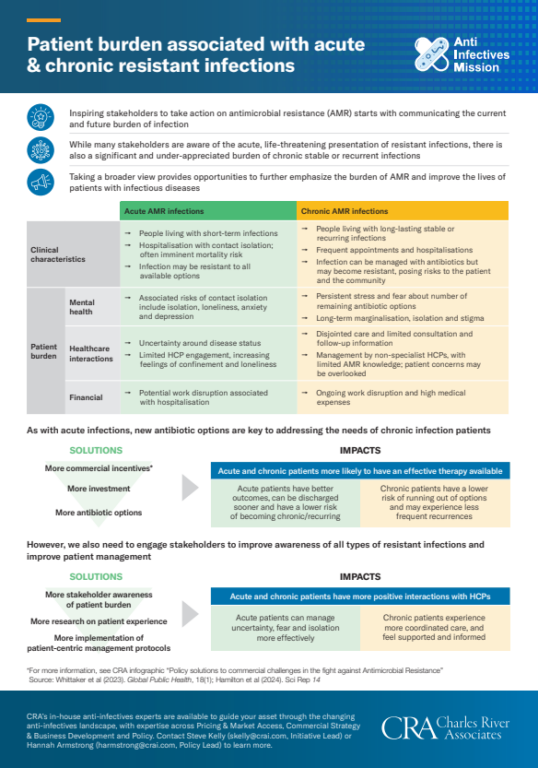Antimicrobial resistance (AMR) imposes a significant burden on patients facing both acute and chronic infections.
Acute AMR cases typically involve hospitalization, isolation, and high mortality risk, while chronic cases lead to ongoing stress, frequent medical visits, and rising resistance to treatment. Both types significantly impact mental health, disrupt work, and strain healthcare interactions—often leaving patients feeling isolated, unsupported, and financially burdened.
Addressing the challenges experienced by individuals impacted by AMR requires more investment in antibiotic development, greater stakeholder awareness, and patient-centered care strategies to improve the outcomes and quality of life for all affected individuals.
Download the infographic to learn more about advancing solutions for resistant infections.




